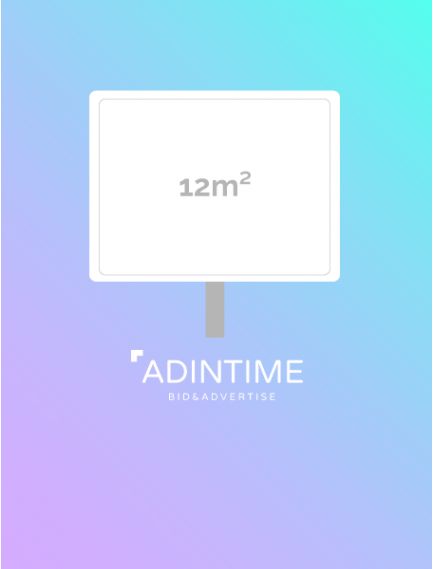The KPIs (Key Performance Indicators) of a marketing campaign are essential measurements for assessing its effectiveness. They typically include return on investment (ROI), conversion rate, cost per customer acquisition, engagement rate, campaign reach and click-through rate. These indicators enable marketers to adjust their strategies and optimize their results.
Why KPIs are essential for evaluating your marketing strategies
KPIs play an important role in managing your marketing campaigns. Without them, you're sailing blindly, which can lead to decisions based on impressions rather than hard facts.
A performance indicator is a kind of guide that shows you whether you're heading in the right direction. If the objective of your marketing strategy is to increase the number of leads, then the KPI to track will not be the same as if your objective was to generate sales.
What is a key performance indicator (KPI)?
A KPI is a precise measure of your performance in relation to a given objective. Let's take the example of an advertising campaign. If your objective is to generate sales, a good KPI might be the conversion rate: how many people who saw your ad actually made a purchase? But a KPI can also relate to other objectives, such as increasing the number of visitors to your site or improving engagement on social networks.
The importance of defining clear objectives for each marketing campaign
Before you can measure the impact of your actions, it's essential to define clear, measurable objectives. This enables you to choose the right KPIs.
If you don't know exactly what you want to achieve (such as generating a certain number of leads or increasing your sales by X%), it will be difficult to know whether your campaign is a success. You need to ensure that each objective is aligned with measurable performance indicators.
Statistics: According to a study by HubSpot, companies that set clear objectives are 12% more likely to achieve their goals than those that don't (source: HubSpot, State of Inbound 2024).
How KPIs optimize marketing performance
KPIs help you identify what's working and what's not in your marketing campaign. If you notice, for example, that one of your KPIs, such as bounce rate, is too high, it probably means that your landing pages aren't meeting your visitors' expectations.
By adjusting the content or structure of your site, you can reduce this rate and improve the marketing performance of your campaign.
The essential KPIs to track in a marketing campaign
Not all KPIs are created equal. Some are more important than others, depending on the objectives of your marketing campaign. Here are a few you absolutely must track to assess the effectiveness of your actions.
The number of visitors
A basic indicator is the number of visitors to your site or landing page. If you're launching a marketing campaign aimed at generating traffic, an increase in the number of visitors is a direct sign that your campaign is capturing the attention of your marketing target.
This indicator is particularly relevant when you're using channels such as paid advertising or digital marketing more generally.
Conversion rate and number of leads
The conversion rate is undoubtedly one of the most important metrics. It measures how many visitors to your site turn into leads or customers. This KPI is essential for knowing whether your conversion efforts (such as calls to action or contact forms) are working.
If you find that your conversion rate is low despite a good number of visitors, it may mean that you need to improve your customer journey or adjust your offers.
According to a study by WordStream, companies with a conversion rate above 5% are generally 3 times more profitable than those with a rate below 1%.
The bounce rate
The bounce rate indicates the percentage of visitors who leave your site after viewing a single page. If you have a high bounce rate, it may mean that your landing page isn't engaging, or that your paid advertising isn't aligned with user expectations.
A low bounce rate is generally a good indicator that your visitors are finding what they're looking for and are encouraged to explore further.
How to use KPIs to optimize your advertising campaigns
Key performance indicators are also valuable tools for fine-tuning your advertising campaigns and maximizing ROI. Here's how you can use them to fine-tune your digital marketing.
KPIs for digital marketing
Digital marketing relies on very specific KPIs. For example, cost per click (CPC) and conversion rate are essential profitability indicators for an online advertising campaign. Tracking the evolution of these KPIs lets you know whether your digital marketing efforts are paying off, and whether you need to readjust your budget or your ads.
The impact of social networks and paid advertising on your results
Social networks have become an essential channel for reaching your marketing targets. Tracking metrics linked to social network interactions (likes, comments, shares) or the number of leads generated can give you an idea of the impact of your campaigns. If you notice a drop in engagement, you may need to review your paid advertising or optimize your content.
Tracking sales
In the end, the essential KPI remains the sales generated by your campaigns. By closely monitoring the evolution of your revenues, you'll know whether your marketing actions are having the desired effect. Sometimes, the increase in sales may not be immediate, but by monitoring these KPIs closely, you can adjust your approach and maximize your results over the long term.
Tools for tracking and analyzing your KPIs in real time
Measuring is good, but tracking and adjusting in real time is better. There are several tools you can use to track your KPIs and analyze the results of your marketing campaigns.
Performance measurement tools
Google Analytics, for example, gives you an overview of visitor numbers, bounce rates, and much more.
Tools such as HubSpot or SEMrush also enable you to track the evolution of your paid advertising, cost per click, and other essential indicators for optimizing your campaigns.
Search engines and their role in tracking your campaigns
Search engines are an important traffic vector for your marketing campaigns. Tools like Google Search Console can help you track KPIs such as keyword positions, organic traffic volume and conversion rates from natural results.
How Key Performance Indicators can guide your marketing decisions
KPIs aren't just for measuring results, they're levers for adjusting your marketing strategies in real time. Through in-depth analysis, you can identify the most profitable actions and optimize your budget to maximize your results.
By tracking these key indicators, you can not only measure the performance of your marketing campaigns, but also adjust your efforts to achieve your objectives more precisely and efficiently.




 Top 30 best ads musics
Top 30 best ads musics
 The influence of advertising on purchasing behavior
The influence of advertising on purchasing behavior
 Top of the most listened podcasts in France
Top of the most listened podcasts in France
 Top 30 best ads 2021 in France
Top 30 best ads 2021 in France
 This Year Marketing Calendar
This Year Marketing Calendar
 OOH Advertising: My honest review
OOH Advertising: My honest review
 Facebook Ads Library: The ultimate guide to winning campaigns
Facebook Ads Library: The ultimate guide to winning campaigns
 How to prepare your advertising campaigns for Christmas?
How to prepare your advertising campaigns for Christmas?
 The top 20 ad films of the year
The top 20 ad films of the year
 Example of a unique selling proposition
Example of a unique selling proposition









